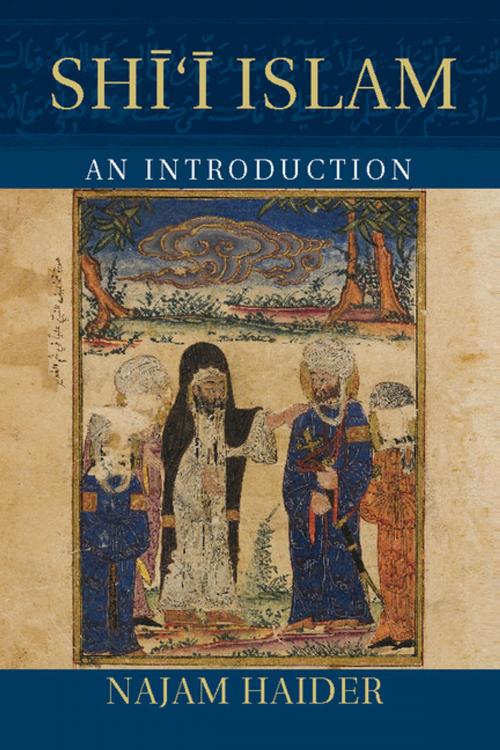Shi'i Islam
An Introduction
Nonfiction, Religion & Spirituality, Middle East Religions, Islam, History, Middle East| Author: | Najam Haider | ISBN: | 9781316053911 |
| Publisher: | Cambridge University Press | Publication: | August 11, 2014 |
| Imprint: | Cambridge University Press | Language: | English |
| Author: | Najam Haider |
| ISBN: | 9781316053911 |
| Publisher: | Cambridge University Press |
| Publication: | August 11, 2014 |
| Imprint: | Cambridge University Press |
| Language: | English |
During the formative period of Islam, in the first centuries after Muhammad's death, two particular intellectual traditions emerged, Sunnism and Shi'ism. Sunni Muslims endorsed the historical caliphate, while Shi'i Muslims, supporters of 'Ali, cousin of the Prophet and the fourth caliph, articulated their own distinctive doctrines. The Sunni-Shi'i schism is often framed as a dispute over the identity of the successor to Muhammad, whereas in reality, Sunni and Shi'i Muslims also differ on a number of seminal theological doctrines concerning the nature of God and legitimate political and religious authority. This book examines the development of Shi'i Islam through the lenses of belief, narrative, and memory. It also covers a wide range of Shi'i communities from the demographically predominant Twelvers to the transnational Isma'ilis to the scholar-activist Zaydis. The portrait of Shi'ism that emerges is that of a distinctive and vibrant community of Muslims with a remarkable capacity for reinvention and adaptation, grounded in a unique theological interpretation of Islam.
During the formative period of Islam, in the first centuries after Muhammad's death, two particular intellectual traditions emerged, Sunnism and Shi'ism. Sunni Muslims endorsed the historical caliphate, while Shi'i Muslims, supporters of 'Ali, cousin of the Prophet and the fourth caliph, articulated their own distinctive doctrines. The Sunni-Shi'i schism is often framed as a dispute over the identity of the successor to Muhammad, whereas in reality, Sunni and Shi'i Muslims also differ on a number of seminal theological doctrines concerning the nature of God and legitimate political and religious authority. This book examines the development of Shi'i Islam through the lenses of belief, narrative, and memory. It also covers a wide range of Shi'i communities from the demographically predominant Twelvers to the transnational Isma'ilis to the scholar-activist Zaydis. The portrait of Shi'ism that emerges is that of a distinctive and vibrant community of Muslims with a remarkable capacity for reinvention and adaptation, grounded in a unique theological interpretation of Islam.















